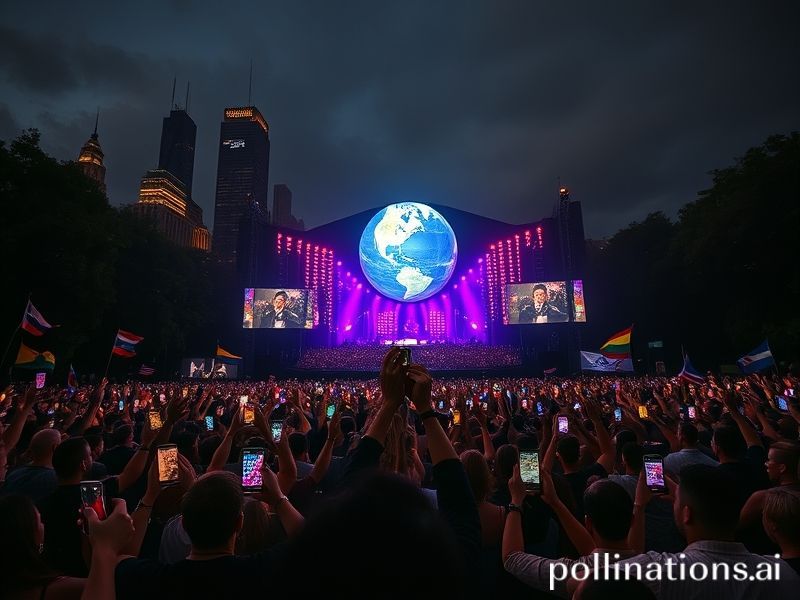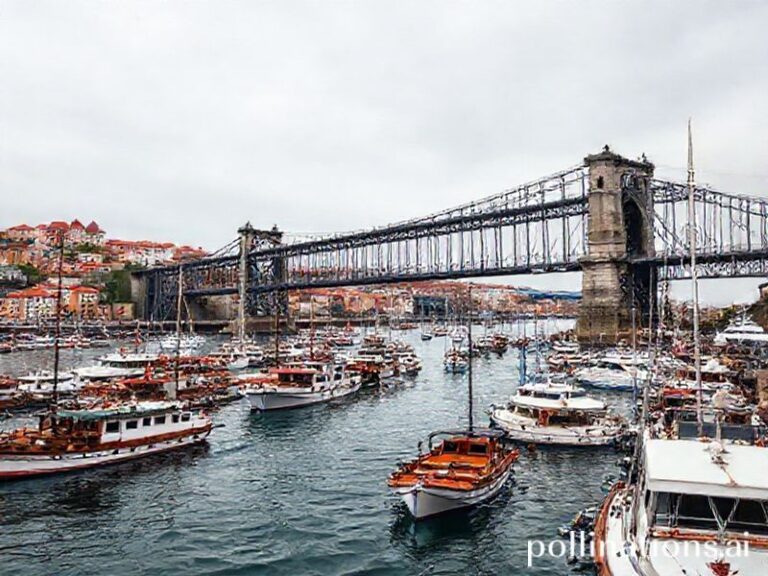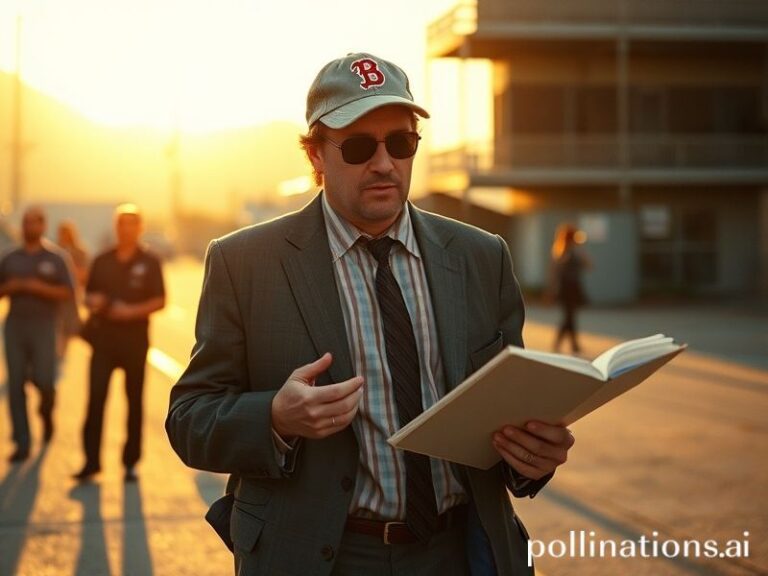Global Citizen Festival: Rocking the Apocalypse with VIP Wristbands and Carbon Offsets
Global Citizen Festival: A Rock Concert for the Apocalypse
By Dave’s Foreign Desk
NEW YORK—Every September, when the UN General Assembly slouches into town like an overworked parent arriving late to a school play, another ritual unfolds on the Great Lawn: the Global Citizen Festival. Picture 60,000 people in sustainably sourced sneakers, waving LED wristbands that will outlive the coral reefs they’re trying to save, all chanting “We are the change” between sponsored hydration breaks. It is Woodstock reimagined by McKinsey: less mud, more metrics, and absolutely no brown acid—only green bonds.
The festival began in 2012 as a feel-good bribe: attend a free Coldplay set, earn “points” for tweeting about malaria, and maybe your government will notice. Twelve years on, it has metastasized into a planetary pop-up HR department. This year’s lineup—Dua Lipa, Jung Kook, and a hologram of consciousness—played to delegations flown in on private jets that left contrails shaped like corporate logos. Somewhere above the Atlantic a Saudi PR adviser texted his client: “You’re up after the vaccine song.”
The genius of Global Citizen is that it converts guilt into a loyalty program. Scan your wristband, sign a petition against famine, collect another micro-dose of virtue. The algorithm tallies the clicks and, like a celestial accountant, issues press releases claiming 1.2 million “actions” and 3.8 billion “impressions.” Impressive indeed—until one recalls that the same week the World Food Programme cut rations for 2 million Somalis because the donations didn’t clear compliance. Somewhere in Mogadishu a child learning subtraction wonders why the math never adds up.
Headlines tout commitments: Germany promises another €200 million for climate adaptation, Pfizer pledges 6 million more malaria pills, and a mining consortium agrees to stop dynamiting villages on Thursdays. Each announcement is cheered by teenagers who will inherit both the debt and the debris. A Norwegian minister is filmed crowd-surfing; he later clarifies that the surfboard was offset by a mangrove project in Indonesia, conveniently located under a new nickel smelter.
I asked a Senegalese delegate what she made of the spectacle. She laughed the way people laugh when the joke is on them. “It’s like a wedding where the bride and groom renew vows every year but never move in together.” Her country’s coastline is disappearing faster than VIP wristbands, yet the festival’s carbon counter proudly flashes “NET-ZERO EVENT.” The trick, insiders whisper, is to purchase offsets from a forest that was never going to be cut down in the first place—existential accounting at its finest.
Of course, cynicism is as on-brand as the merch. The after-party, hosted by a streaming giant, features cocktails named after endangered species. (“One Amur Leopard, please—shaken, not stirred.”) A British pop star apologizes for her private flight, then boards a helicopter to beat traffic to the Hamptons. Meanwhile, the lawn itself—freshly re-sodded for optics—will require 90,000 gallons of water to recover, the same amount a village in Chad uses in a year. But the sprinklers are solar-powered, so everyone feels better.
And yet. And yet. Buried beneath the contradictions is a stubborn fact: 2.4 billion people watched the livestream. Somewhere in São Paulo a medical student decides to finish her infectious-disease thesis. In rural Uttar Pradesh a teacher downloads a free lesson plan on sanitation. The festival’s ledger may be cooked, but the stories still leak out, like light through a cracked blackout curtain. Even a rigged lottery produces occasional winners.
As the final chord echoed off Manhattan’s glass cliffs, security herded the crowd toward compost bins labeled “HOPE.” I lingered to watch the cleanup crew sweep up biodegradable confetti that resembled shredded manifestos. A volunteer from Ghana handed me a leftover wristband. “Souvenir,” she said. “Proof you were here before the sea.” I slipped it on; it still blinked every five seconds, counting something—steps, sins, or seconds until next year’s apology tour.
Conclusion
Global Citizen Festival is less a festival than a recurring fever dream: part corporate penance, part millennial pep rally, part open-bar for geopolitical guilt. It will not halt the melting ice sheets or the marching autocrats. But it does force the Davos set to sing for their supper under stadium lights, and for one night the planet’s contradictions are rendered in 4K. In an age when outrage is monetized and hope comes with a QR code, that may be the most honest spectacle democracy can still afford.







